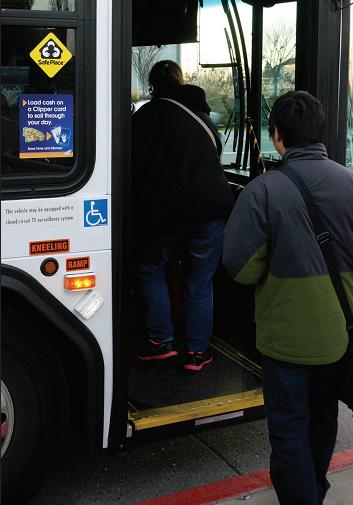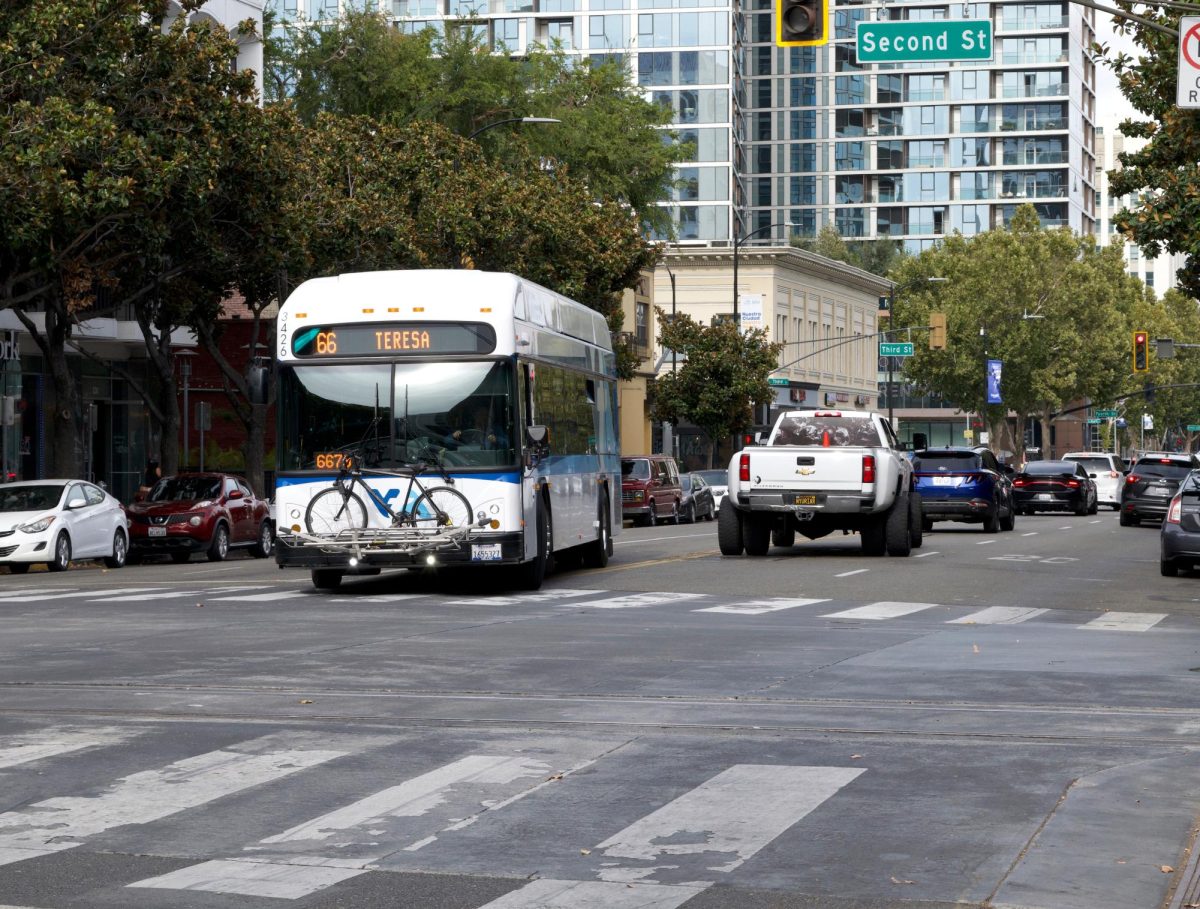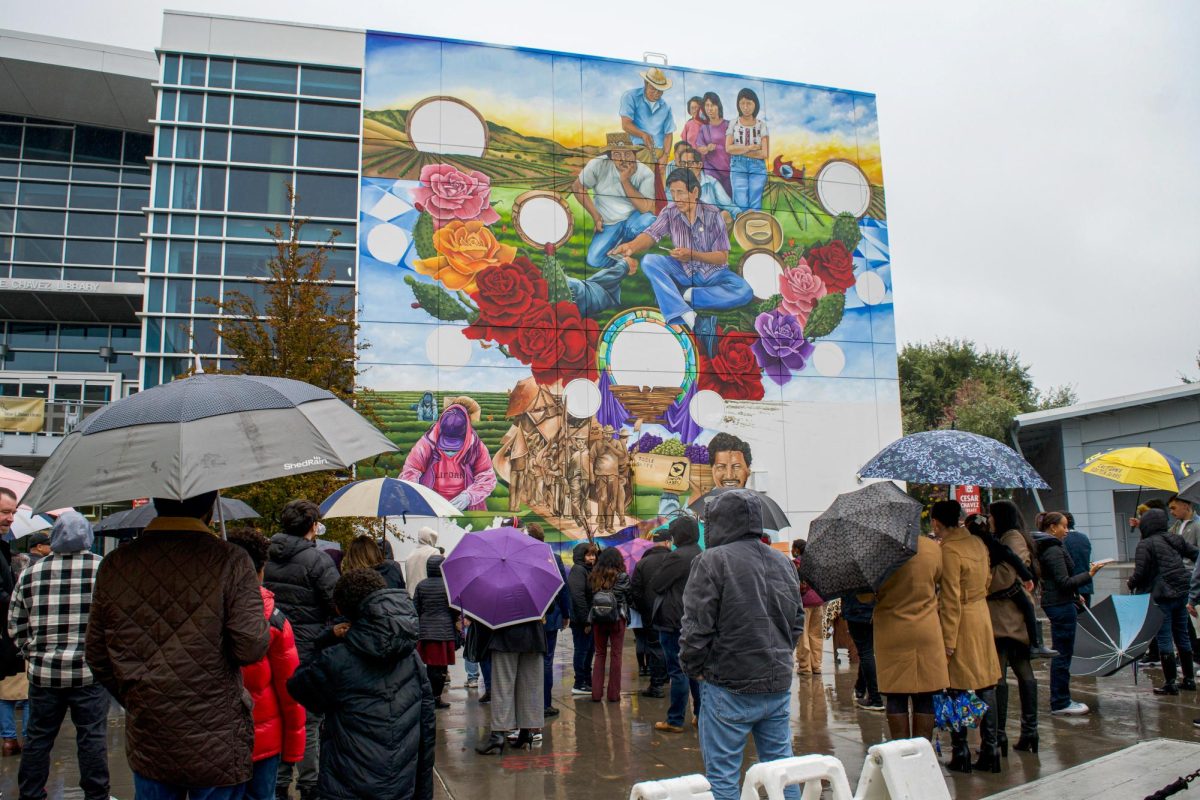
The path to education is not the same for everyone. The same is true for getting to school. For those who use public transportation, prices may be cheaper in the future.
The Eco Pass is a voucher run by Valley Transportation Authority that would cut the cost of their services for full-time students to $10 and $9 for part-time students, said Michael Casas, 43, political science major and associated student president. Faculty members aren’t eligible for the Eco Pass vouchers.
The Eco Pass is an annual photo ID pass that entitles the bearer to ride VTA buses and light rail vehicles, according the VTA Transportation Handbook.
Current bus lines to SJCC include routes 25, 61, 62 and 65. The VTA light rail also has stations at the Fruitdale and Bascom stops.
The Eco Pass has yet to be implemented. Four hundred student signatures are needed to hold the special election on the issue. The Associated Student Government selected volunteers from their meeting held Feb. 20, to gather the signatures. If the special election is held, then voting will be through March 4 to 8. The Eco Pass vouchers would be available starting in the fall of 2013.
During the summer, an email containing a survey questioned students about the Eco Pass. According to Casas, 90 percent of those who partook in the survey approved of the proposal.
At the Associated Students meeting Feb. 20, Casas said, along with SJCC, West Valley and Mission College are trying to establish their own Eco Pass vouchers. San Jose State University, De Anza, and Foothill are already implementing the voucher.
The idea for the Eco Pass has been around for three years. All-Trans representative Andrew Ridley pitched the idea to SJCC with the original price of $36 a year back when community college unit prices were increased from $26 to $36.
Public transportation supports some students in getting where they want to go. For those who do, they may not have their own car, a driver’s license, are environmentalists or want to save money.
“To others who won’t use it, it’s like a tax,” said Cian Galaboc, 19, kinesiology major. “They pay for something that doesn’t necessarily benefit them.”
The cost of the voucher affects all students. The school fees paid every semester will be increased by at least $9, whether or not the students choose to use the Eco Pass voucher.
“I know a lot of students who take the bus,” said Judith Bell, arts and multimedia instructor. “I’ve got a student who lives by Curtner. It would certainly make his life easier because he lives in a homeless shelter and doesn’t have a lot of money, so it would definitely help.”
Students pay $70 for a monthly pass and $770 for an annual pass. Four monthly VTA passes cover a single semester, which costs $280.
“We’re a community of students,” said Aaqilah Brown, 20, neurobiology major. “It’s an extra $10 to save a student $270.”






